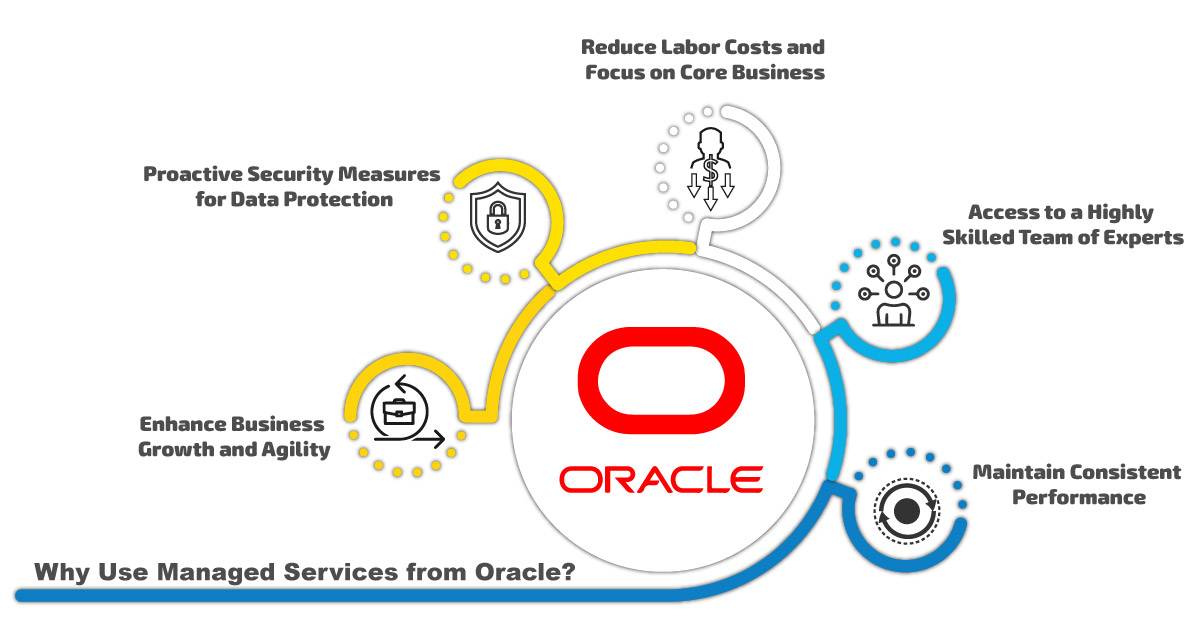A robust cloud-based data management environment with storage allows organizations to harness the power of data and gain insights to help various stakeholders. For enterprises to access accurate data as and when needed, the database needs to be managed by a third-party service provider. These managed cloud service providers ensure that large volumes of data perform at an optimum level and always deliver the best value.
According to MarketsandMarkets, the managed services market size is projected to grow at a Compound Annual Growth Rate (CAGR) of 7.9% during the forecast period, to reach $354.8 billion by 2026 from $242.9 billion in 2021.
However, to take maximum advantage of the large data and stay ahead of the competition, enterprises need to do their due diligence and choose the right service provider to manage the cloud services.
Every organization has to upgrade the database applications periodically so that data is stored, organized, or retrieved better so they can become valuable, actionable data. Managed service from Oracle offers the primary building block with options, such as fast networking, reliable storage and security, AI-driven analytics, and computing options.

Usually, businesses deploy a team of IT resources right from database administrators to security experts to manage Oracle applications in the infrastructure.
Managed services from Oracle simplify the management of Oracle solutions, both on the cloud and on-premise. An Oracle Managed Service Provider (Oracle MSP) is a partner or an outsourced expert that will update, upgrade, monitor, manage, and protect the Oracle infrastructure of an enterprise 24*7.
Enterprises choose to work with managed services experts to fill gaps in their existing in-house IT skillset. Businesses further rely on cloud MSPs to handle routine tasks such as cloud monitoring and management.
- Oracle MSPs free up the bandwidth of internal IT teams. IT strategy is a critical skill that is needed for business resources to succeed in today’s fast-paced, tech-driven business landscape. With an efficient outsourced IT team to handle the more routine tasks of Oracle systems administration and management, internal teams can focus on understanding additional tools and technologies businesses need to invest in for faster growth.
- Managed services help maintain consistent performance and ensure proactive security. An outsourced managed services team can handle the burden of tuning, patching, monitoring, managing, updating, upgrading, and securing Oracle systems. They also help reduce labor costs significantly and ensure that businesses always work with up-to-date, efficient systems available.
- Oracle MSPs provide support at all times. An Oracle MSP ensures access to a highly experienced, highly skilled team that is laser-focused on all the latest Oracle advancements that can benefit enterprises. With Oracle experts on demand, the business can have a team who can resolve complex issues. They will get the services of a technology strategist who can offer relevant, personalized advice about the latest Oracle options, and a professional for every other requirement. This prepares the enterprise to scale up the business without any hassle.
- Oracle advisory services help businesses overcome data threats using an end-to-end approach to security and guard against any data breaches. They help enhance business growth, agility, and potential with Oracle Cloud infrastructure, AI-driven analytics, fast networking, reliable storage, and computing options. They help Oracle systems stay updated, fully secure, and 100% aligned with the overall business objectives of an enterprise.
Evaluating the Right Oracle MSP for Your Business

While organizations leverage the cloud to gain agility and resilience in their business operations, they need to focus on balancing ongoing support for critical innovations with limited budgets and resources. Gemini Consulting & Services is well-placed to provide technological support to enterprises to unlock maximum value from their Oracle Cloud systems. Contact us to know how more about our expertise and services.
- Getting the internal team on board is a critical first step to help make the transition a lot smoother and faster. Begin with addressing their concerns, reassure them and then slowly get them on board. It will also be a good idea to help them participate in the selection process.
- Talk to potential Oracle MSPs and understand their cloud experience. The right Oracle MSP should be able to demonstrate a long and varied history of successful cloud management with diverse clients and a sound team of in-house Oracle Cloud experts who can help take care of the demands of your business. Oracle cloud certification for each of them is also a must.
- Clarify questions posed by the MSP and help set the stage for the next level. It is better to be completely transparent with prospects as they need to protect data, keep systems running, and optimize Oracle Cloud using IaaS, PaaS, and SaaS models while handling the ones on-premises as well.
- Check their response for strategic recommendations with a broader perspective of the business. This will help in understanding the logical next step for the business and how well they can execute them. Ensure that ideas are shared freely during interactions with the prospective Oracle MSP.
- Check the SLA at the very end as most likely this might not be required if the high-level overview doesn’t check out. SLA details like response time, guaranteed uptime, support availability, and security guarantees are often similar for most service providers. SLAs however will require some negotiation on the part of the enterprise and the services provider.



